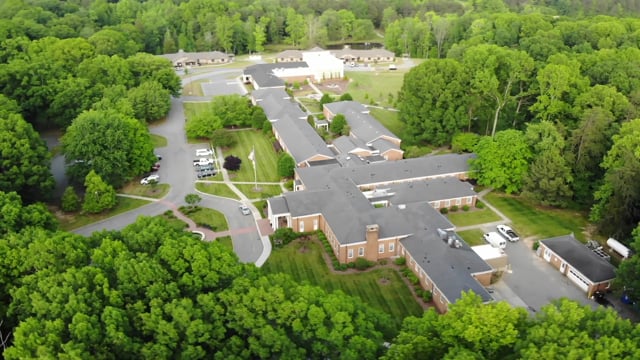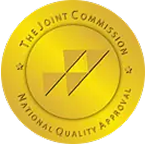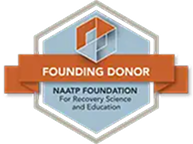Building Foundations: How Fellowship Hall’s Young Adult Program Forges Tools for Lasting Recovery

Picture this: you’re 22 years old, navigating your first real job, new relationships, and independence for the first time. The world feels full of possibility yet overwhelming with all the unknowables. Now imagine that nearly three out of every 10 people your age are struggling with a substance use disorder.
This isn’t hypothetical. It’s today’s reality. The statistics are staggering: 27.1% of young adults aged 18-25 (9.2 million people) battled substance use disorders in the past year. Among them, 15.1% struggle with alcohol use disorder while nearly 25% grapple with illicit drug use disorders. These numbers represent millions of young people whose futures hang in the balance during what should be the most promising years of their lives.
This addiction crisis among young adults is particularly concerning because their recovery needs differ dramatically from older adults. Young people face unique challenges — from underdeveloped brain chemistry to social pressures and life transitions — that traditional treatment approaches often fail to address adequately.
Fellowship Hall’s Young Adult Program in Greensboro, North Carolina, recognizes that cookie-cutter treatment doesn’t work for this vulnerable population. Our specialized approach is designed specifically for ages 18-25, combining evidence-based therapies with age-appropriate programming that addresses the distinct developmental and social needs of young adults.
In this blog, we’ll show you exactly how our program addresses these unique challenges through specialized activities, integrated 12-Step support, and peer communities built specifically for young adults. You’ll get the tools not just to get sober, but to build a life you actually want to live.
The Current Reality: Young Adults and Substance Use
Young adults aren’t just leading addiction statistics. They’re living in an entirely different reality than any generation before them. The stakes are higher, the substances deadlier. This makes finding effective addiction recovery centers with specialized young adult programming more critical than ever.
Patterns of Use Tell a Sobering Story
The numbers from the 2023 National Survey on Drug Use and Health reveal disturbing patterns across substance categories:
Alcohol – While 50% of young adults drank in the past month, nearly 30% engaged in binge drinking and over 7% maintained heavy use patterns.
Marijuana – More than one-third of young adults used marijuana annually, with 18% developing marijuana use disorders despite increased social acceptance.
Prescription opioids and heroin – Though affecting 3.1% of young adults, this represents hundreds of thousands of lives at immediate risk.
Early onset impact – Those experimenting with substances before age 15 are 6.5 times more likely to develop addiction later—meaning childhood experiences directly shape young adult futures.
The Fentanyl Crisis: When One Use Can Be Fatal
Today’s addiction crisis is deadlier than ever before. Fentanyl has contaminated the illicit drug supply so extensively that a single use can be fatal. The numbers are staggering: drug overdose deaths among adolescents more than doubled between 2018 and 2022, with fentanyl driving this surge. In 2023 alone, over 73,000 deaths were fentanyl-related — representing three out of every four drug overdose fatalities.
Learn more about the Signs of Fentanyl Use.
The Digital Influence
Compounding this unprecedented danger is an unrelenting digital landscape that heavily influences young adult substance use patterns. Social media platforms normalize and glamorize consumption of nicotine, drugs and alcohol through carefully curated posts. Research shows young adults who frequently view substance-related content on social media are significantly more likely to engage in substance use themselves, with a recent study finding participants had nearly 20 times higher odds of substance use on days when exposed to peer-posted drug content.
Social media makes this crisis even worse. Every day, young adults scroll through feeds filled with posts that make substance use look cool and harmless. Whether it’s party pics with drinks, vaping videos, or drug-related memes, these platforms are constantly normalizing addiction. The research is clear: young adults who see this content frequently are significantly more likely to use substances, with one study showing nearly 20 times higher odds of drug use on days when they viewed peer posts about substances.
A Treatment Gap During Peak Vulnerability
Despite these sobering realities, a massive treatment gap persists. According to , while 54.2 million Americans needed substance use treatment, only 1.6 million received it. However, there’s reason for hope: young adults today are seeking help earlier than previous generations, creating unprecedented opportunities for successful long-term recovery. This shift makes it essential that treatment approaches align with their unique developmental needs.
Why Young Adults Need a Different Approach
Traditional substance abuse treatment approaches often fail young adults for fundamental biological and psychological reasons. At 18 to 25, these individuals aren’t simply younger versions of older adults; they’re navigating a distinct developmental stage that requires specialized intervention strategies that address several critical factors:
Developing brains – The prefrontal cortex doesn’t fully mature until around age 25, meaning young adults process addiction, consequences, and recovery differently than older counterparts.
Identity formation crisis – While older adults rebuild established lives, young adults are simultaneously asking “Who am I?” while learning “How do I stay sober?” — requiring dual focus on psychological development and addiction.
Mental health intersection – Roughly 13.5% of young adults struggle with concurrent substance use and mental health conditions, often using substances to self-medicate anxiety, depression, or trauma.
Power of peer connection – Clinical research demonstrates that age-specific group settings significantly improve engagement and outcomes—when a 22-year-old shares career concerns while maintaining sobriety, other young adults understand in ways older adults simply cannot.
Fellowship Hall’s Young Adult Program: A Tailored Path to Recovery
Recognizing these unique developmental and social challenges, Fellowship Hall’s Young Adult Program offers a comprehensive treatment approach specifically designed for individuals aged 18-25. Rather than adapting adult programming for younger participants, like many addiction recovery centers do, our program is built on understanding how young adults learn, connect, and heal differently during this critical life stage.
Fellowship Hall’s comprehensive approach to young adult therapy integrates four key components:
Experiential Activities – Clients engage in creative therapies, and hands-on challenges that build genuine self-esteem, develop healthy coping skills, and introduce positive interests to replace substance-focused activities.
Tailored Support Networks – Young adults are connected with sober peers who get the struggle of finding recovery tools in genuine community while navigating career decisions and financial pressures.
Holistic Development – We teach real-world skills — like building healthy relationships — because lasting recovery means being equipped to create a fulfilling, independent life.
12-Step Program – Weaving the time-tested framework of the 12 Steps of AA seamlessly throughout treatment, provides community support, structural accountability, and spiritual growth opportunities during this life stage characterized by existential questioning. Our approach incorporates both the 12 Steps and 12 Traditions, adapting these principles for young adults whether they connect with AA, the 12 Steps of NA, or other 12-Step program variations.
Research consistently demonstrates that adding 12-Step elements significantly boosts long-term success rates, particularly for young adults who benefit from its structured yet flexible framework that helps develop executive functioning skills still maturing in young adult brains.
The Long-Term Impact: Building a Foundation for Life
True recovery extends far beyond simply abstaining from substances. It’s about constructing a meaningful, fulfilling life that you genuinely want to protect and nurture. Fellowship Hall’s comprehensive approach recognizes that your lasting sobriety emerges when you develop the tools, relationships, and sense of purpose that make substance use unnecessary and unappealing.
The skills you learn through experiential activities, 12-Step integration, and peer community building become lifelong resources. You’ll graduate equipped not just with a comprehensive relapse prevention plan, but with confidence in your ability to navigate career challenges, build authentic relationships, manage mental health, and pursue goals that align with your values.
Perhaps most importantly, when you receive specialized, age-appropriate treatment during this critical developmental window, early recovery often becomes a catalyst for discovering not only your true self, but your true potential. The ripple effects extend far beyond your individual life — you can become a leader in your community and, if you choose to be a parent, help break generational cycles of addiction.
Take the Next Step
If you’re a young adult struggling with substance use, or if you’re concerned about someone you love, remember that seeking help isn’t an admission of failure. It’s an act of courage that can reshape an entire life trajectory.
Fellowship Hall’s Young Adult Program offers specialized, comprehensive addiction recovery care that matches the unique challenges and potential of this critical life stage. Our treatment center provides the combination of evidence-based substance abuse treatment, age-appropriate community, and life skills development provides young adults with everything they need not just to get sober, but to build lives they’re genuinely excited to live.
Don’t let another day pass wondering “what if.” The support, understanding, and tools for lasting recovery are available. Your future — or the future of your loved one — is worth the investment.
Learn more about Fellowship Hall’s Young Adult Program and take the first step toward addiction help and lasting recovery.
"*" indicates required fields
CONNECT WITH US
Our Admissions Staff Is Here to Help
Not sure if you or someone you love needs help? Call our Admissions Staff who can help you assess the next step at 336-553-6596."*" indicates required fields






